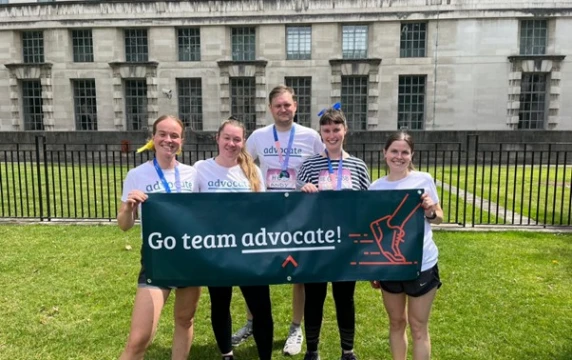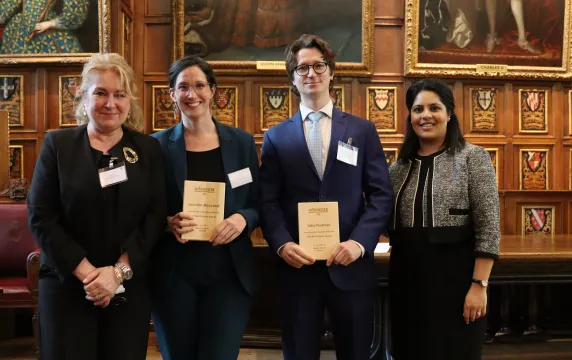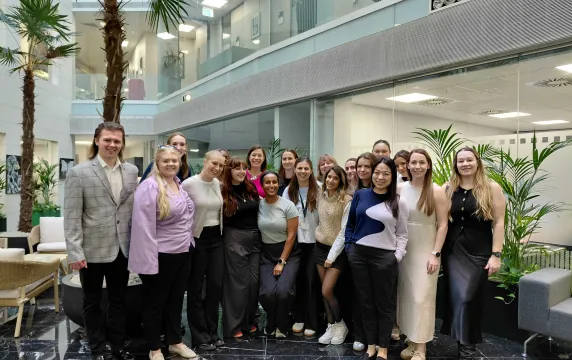Ahead of the upcoming deadline for pupillage applications, Advocate Panel Member and former caseworker, Markus Findlay, shares his top ten tips for securing pupillage.
General
- Persevere – Securing pupillage is likely one of the hardest tasks you will ever set yourself. It often takes people many years to succeed. If you can pass your law exams and you love the idea of being a barrister enough, you will get there in the end. My personal pupillage maxim was “never give up”, make it yours too.
- Hard work is never wasted – The reality is that if you are not willing to work hard, you won’t secure pupillage. However, that said, sometimes you will be working hard for long periods of time and feel like you have nothing to show for it. Don’t worry. Whether it is volunteering through Advocate or writing a dissertation, hard work is never wasted. The skills, contacts, and knowledge I acquired during those years serve me on a regular basis in my practice. Eventually you will see the fruits of your pre-pupillage labours, even if it is years later.
Written Applications
- Be a STAR – It can be hard to answer the question posed. The stress of the pupillage process means you often can’t see the wood from the trees. I found STAR (Situation, Task, Action, Result) a useful way of structuring my answers. In essence, everything you write needs to be substantiated with a real-life example and you need to show the outcome of this experience by demonstrating what you learnt or enjoyed. See STAR applied to my work at Advocate here:
Situation: Work at Advocate.
Task: Facilitate access to justice.
Action: Advise applicants and brief barristers.
Result: Develop useful communication skills.
“At Advocate I communicate with a wide range of people. Every day I advise vulnerable applicants experiencing everything from homelessness to suicidal thoughts on how to obtain free legal services. I also brief senior barristers on the key issues in their pro bono cases. As a barrister I will use the same skills to appropriately address judges and clients alike.”
- Trust in Orwell – George Orwell’s ‘Six Rules for Writing’ are gold. It’s all about keeping it simple.
- Short sentences – Keep it short and punchy. According to this government website: “when average sentence length is 14 words, readers understand more than 90% of what they’re reading. At 43 words, comprehension drops to less than 10%.”
- Colour – It doesn’t matter what work experience you have. What matters is how engaging and relevant you make it on paper. In short, add colour. Imagine the local newspaper was writing about your time volunteering at Advocate or your mini-pupillage. What would they write to grab their readers’ attention? Warning: adding colour does not mean being sensational. Effective written advocacy is dispassionate. Here is how I added colour to write about one of my Advocate cases:
“Barristers often have a positive impact on the lives of their clients. At Advocate, I instructed a KC in a GMC case involving a GP falsely accused of sexual misconduct. Had it not been for her expert cross-examination our client would have certainly lost his career. It would be a privilege to further develop these skills myself, which are highly specialised and essential in facilitating justice.”
Pupillage Interviews
7. Get a mentor – Like raising a child, securing pupillage requires a village. I had several mentors at different stages of their legal careers, and all provided different but valuable advice about pupillage interviews. You need a mentor who is a recent pupil who remembers what it was like applying. You also need a more experienced practitioner in your chosen field who can help you understand the expectations of your interview panel. The best mentors are the ones who are generous with their time and want you to succeed. If you haven’t found them yet, keep looking. Here is a podcast I recorded for Gray’s Inn with my mentor.
8. Practise – Pupillage interviews are in some sense like a GSCE French oral exam. You need to learn developed and mentor-approved answers off by heart and then be able to deliver them with style. I recommend writing a script of your answers to the most commonly asked questions, “why do you want to be a barrister?” or “why do you want to practise in your chosen field?” and then practise them with someone. One of my previous mentees did this for a Bar scholarship interview and she was utterly impressive. Rest assured, she also got one of the best scholarships!
9. Self-reflect – After each interview immediately write out (a) what you were asked, (b) what you said in response, (c) what you did well, and (d) where you can improve. Such a note serves as a good prompt for future interviews as you will often be asked similar questions. The process of writing this out helps you reflect clearly on your performance. It also helps your mentor identify where they can best help you. It is useful to compare your reflective note with any feedback you receive. In my final year of applying, my reflective note totalled 9,644 words.
10. Information is power – The more you absorb about the Bar and developments in your chosen area of law, the better you will be at interview. The best sources of information for me were Counsel Magazine, the daily email update from Inner Temple Library Current Awareness, and the very accessible material on the CPS website, which criminal barristers use regularly. Witness is another great source for criminal law links, which is sent on a weekly basis.
Other useful resources:
- Pupillage and how to get it – this website is full of good advice for the whole process.
- The Middle Temple Pupillage Podcast – I recommend the episodes on interviews and the Criminal Bar in particular.
- The 5 Essex Chambers pupillage report – this annual report always provides useful and generally applicable insight on what interview panels like and dislike.
Latest news

Marking two years of Birmingham CLIPS
2 Feb 2026















